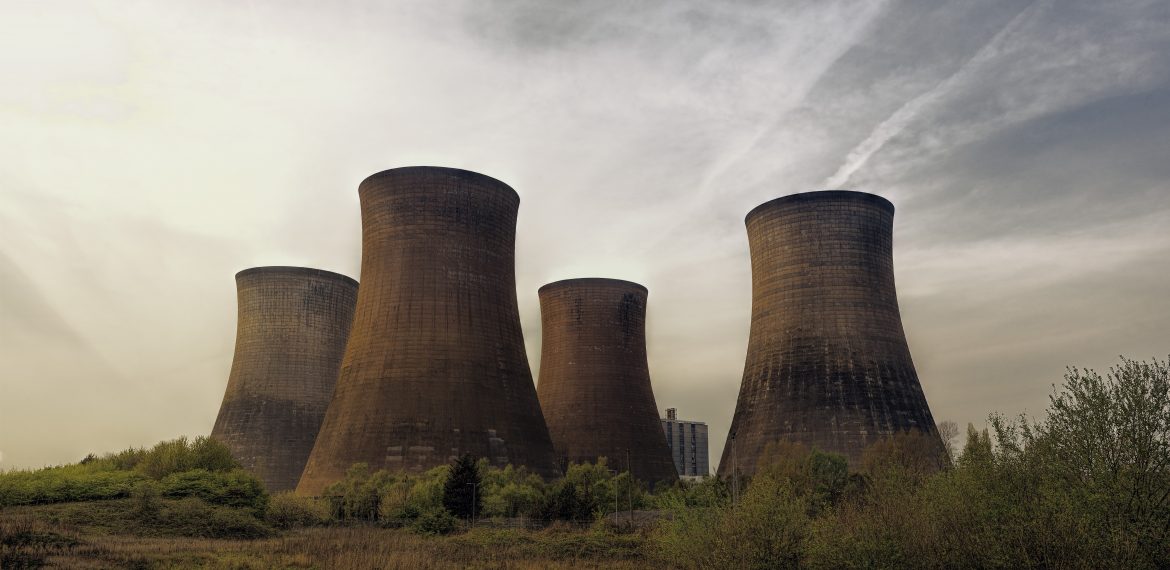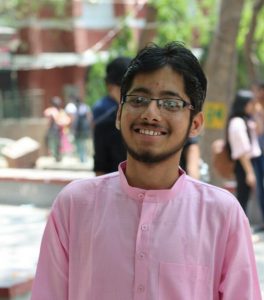The following essay explores the stance taken by Minoo Masani against India’s nuclear ambitions. In doing so, Masani made a critical economic argument to deter Indian policymakers from focusing on nuclear weapons development at the time.
From the time of Nehru laying the foundation of the atomic energy program, India as a nuclear power has come a long way now with its acceptance in the global nuclear regime. India’s path to the bomb and emergence as a responsible nuclear power has not been a straightforward one. Among other factors, the domestic political debate has played a crucial role in shaping India’s nuclear trajectory.
PM Nehru was a proponent of nuclear disarmament but also endorsed the peaceful use of nuclear energy for development. Nehru’s party, the Indian National Congress had an ambivalent attitude towards nuclear weapons, given its ideological commitment to Gandhian principles and Nehru’s advocacy of disarmament.
In contrast, scholars Harsh Pant and Yogesh Joshi have argued that ‘the right-wing political parties such as the Jan Sangh and the Swatantra Party….have always been pro-bomb.’ This article would uncover a part of the neglected but vigorous domestic nuclear policy debate by focusing on the Swatantra Party’s stand, as enunciated by its cerebral leaders Minoo Masani and C. Rajagopalachari.
Rajaji’s vigorous campaign for the nuclear test ban has been discussed in some detail here. [link my earlier sent article on Rajaji against nuclear bomb] He disagreed with the logic of the balance of threat and was deeply worried about the repercussions of nuclear rivalry for human security. The preferred method to deal with the problem, of course, stemmed from his Gandhian conviction as a unilateral moratorium amidst a bipolar arms race would amount to nothing short of moral courage and sacrifice of self-interest.
Admittedly, Rajaji seems to have leaned favorably towards Khrushchev in his writings in the late 1950s, probably because Khrushchev first politely refused to pay heed to his call and then went on to announce a unilateral test moratorium. This, for Rajaji, stood in contrast with belligerent US posturing and the doctrine of brinkmanship under John Foster Dulles. Nonetheless, he went on to meet Kennedy to make the case for the nuclear test ban.
About two years after the Sino-Indian border war, the People’s Republic of China declared it to be a nuclear weapons power in October 1964. In wake of the additional nuclear dimension to India’s security challenge in the neighborhood, it fell upon Minoo Masani to articulate Swatantra’s response to the Chinese bomb. In the December 1964 issue of Freedom First, Masani presciently argued that China’s nuclear bomb posed peculiar challenges to India and both superpowers. The bomb would help China mitigate the threat of the US-backed Kuomintang invasion of the Chinese mainland. In the case of India, a nuclear-powered China would further diminish the prospect to wrestle back the territory lost in 1962 by way of force. Already facing strains and not too far from the split, the Chinese nuclear test tilted the Sino-Soviet relation in the favor of the former.
Not only did the bomb accord military and political advantage to China, but the PRC also harnessed the reputational gain among recently decolonized Third World nations as the first ‘colored’ country to break the ‘white’ monopoly of nuclear weapons. Masani pointed out that there came no condemnation of Chinese action from African nations and the Arab world which had objected to earlier tests. The nuclear test also dealt a blow to India’s prestige based on its self-image as a contender for leading the Third World, argued Masani.
What should be the Indian response to China’s rise as a nuclear power? Masani could see three possible options for Indian policy-makers. According to him, the line toed by the likes of Krishna Menon of not doing anything since it would be foolish to enter the nuclear race amounted to foolishness. Such a position, argued Masani, would lead to ‘the consequent erosion of our national independence and our gradual deterioration to satellite status.’
The other option of India going nuclear also did not seem palatable to Masani. He would cite a range of sources on the unpalatable economic costs of the Indian nuclear weapon program. Apparently, Masani stressed butter in the classic guns versus butter debate as it corresponded to India’s nuclear policy under the PM Lal Bahadur Shastri. In making the economic objection to the nuclear bomb, Masani was on the same page with Shastri and Vikram Sarabhai. On the other hand, both the influential nuclear scientist Homi Bhabha and the right-wing Bhartiya Jan Sangh made the case for an Indian nuclear bomb.
Masani’s favored option was the demand for an extended nuclear deterrence guarantee from nuclear powers against China. However, there existed an ambivalence on Masani’s side on the question of approaching the nuclear guarantor. In his November 23rd speech in Lok Sabha, he was okay with India entering into an agreement with the US and USSR, either jointly or separately. His acceptance of the multilateral nuclear umbrella for India against China at this stage was in line with Shastri’s own diplomatic approach of not dithering from non-alignment on the issue of nuclear deterrence.
However, a month later in Freedom First, Masani outlined his clear preference for the US on the matter of nuclear umbrella. He ruled out the Soviet Union on grounds of reliability. His suspicion of communist brethren bonhomie which would be inimical to Indian interest evinced in no less measure from the 1962 Sino-Indian war. On the matter of the US nuclear umbrella, president Lyndon Johnson’s assurance of support to Non-Nuclear Weapons States against nuclear blackmail was not sufficient to Masani. In a clearly pronounced case for greater alignment with the US, he advocated for getting the US nuclear defense commitment to India as a pre-emptive measure, not a responsive action.
The next major turn in India’s nuclear trajectory would come with the Pokhran-I in May 1974 which turned India into nuclear power. By this time, Swatantra Party was routed in the last general election and would soon decide to dissolve itself in August, Rajaji had already passed away, and Masani was no longer in active party politics. The larger motive behind Indira Gandhi’s decision [Oxford Short Introduction] to go nuclear stemmed from the now uncertain status of implicit US nuclear umbrella after the US-China rapprochement scripted by Henry Kissinger.
Masani’s predictable criticism of India’s nuclear shift appeared in the July 1974 issue of Freedom First. Taking umbrage to the Washington Post’s claim of widespread jubilation in India after Pokhran I, Masani cited a host of critical editorials – including from the Indian leftist outlets and western press – to oppose the WaPo report. His own criticism rested on the infeasibility of the nuclear weapons program for a country facing economic woes.
A self-proclaimed liberal, he saw the test as a hypocritical move from the preachers of socialist doctrine. From the socialist perspective, argued Masani, the money spent on building the bomb ought to be spent on digging wells and minor irrigation projects. What of the crucial importance of nuclear power for Indian national security interest though? Masani did not exactly address this question except for taking the US nuclear aid and reactors for peaceful uses.
In any case, three things are clear from the discussion so far: Rajaji’s worry about the health fallout of nuclear tests and his constant advocacy for disarmament; Masani’s opposition to indigenous nuclear weapons program on economic grounds; and his support to India seeking nuclear deterrence guarantee, preferably from the US. The archival records concerned with the Swatantra Party’s take on nuclear policy thus belies scholar Yogesh Joshi’s argument bundling both the Swatantra and Jan Sangh as pro-bomb parties. As Howard Erdman has argued, there was a significant divergence between the Swatantra and Jan Sangh on Indian foreign policy. The ideological and policy difference extended to the nuclear bomb issue as well with the Jan Sangh taking a more bellicose, pro-bomb approach. Thus, not only does this discussion on Swatantra’s approach to nuclear policy seeks to set the record straight on the matter, but also indicates the vibrancy and diversity within the Indian right-wing tradition.


